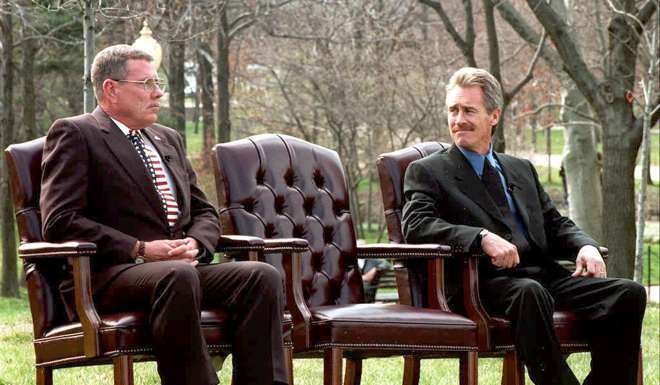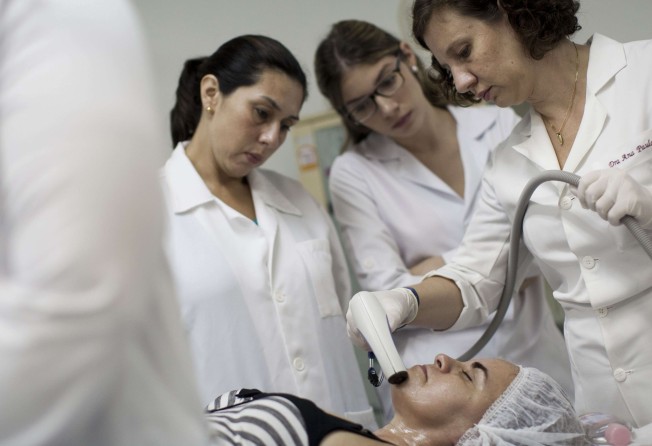
Letters to the Editor, December 22, 2016

Accreditation the way to go in beauty field
I am a former professor of plastic surgery at the Chinese University of Hong Kong and refer to your editorial on the beauty sector (“Beauty treatments must be regulated”, December 19).
Regulation of the beauty industry in Hong Kong is unlikely to succeed. Accreditation, however, may work.
The beauty industry covers a very broad spectrum of services which are continually changing, and attempts to define non-medical and medical interventions have been fraught with conflict of interest issues.
The primary “interest” in this case is most often money. Patient/client safety and quality of care and outcomes are of secondary concern.
A primary generic qualification, such as medical, dental, nursing, does not guarantee competence; specific training and monitored performance in a defined service area does.
In 2012, I proposed setting up a university-based institute of aesthetic medicine that could oversee training, education and accreditation of aesthetic practitioners. This was met with howls of protest from the local plastic surgeons who felt this was going to compromise their income. The suggestion was made, however, in response to the avoidable deaths and complications that occur in the regulated medical profession.
As the editor of an international magazine looking at aesthetic medicine, I am continually receiving reports of new, improved and safer ways of effecting cosmetic transformations. Industry and profession-specific accreditation both suffer from conflict of interest concerns; an independent, accreditation authority would not.
There are solutions to the problem, but these require the robust support of a government that puts the concerns of the public above those of self-interested lobby groups.
Andrew Burd, Tai Po
People should be top priority, not Disney
Last month, lawmakers voiced concerns in the Legislative Council about the government’s proposal to use public money to fund more than half of Hong Kong Disneyland’s planned HK$11 billion expansion.
I do not think it would be appropriate for the government to give around HK$5.8 billion towards the expansion project of the theme park. When it comes to determining budget allocations, the administration should regard people’s livelihood as a priority.
We have a serious housing problem in Hong Kong, and for many citizens it is a struggle just to pay the high rents and impossible to even consider buying a flat. There is clearly a need for more public housing to deal with this crisis. I would certainly want to see that HK$5.8 billion spent on building more public estates.
I am not even convinced that a larger Disneyland will yield profits.
Another more worthy recipient of public money is health care. People on low incomes depend on public hospitals , and there are long queues at accident and emergency departments.
There is also a greater strain on our hospitals because of our ageing population, so they need more resources.
I accept that it is important to attract more tourists to Hong Kong, to help boost business for retailers, hotels and restaurants, but there are other ways of doing that. For example, eco-tourism has a lot of potential and we need to make visitors more aware of our country parks
We can make better use of this HK$5.8 billion.
Angel Wan Yuet-sum, Kwai Chung
Vietnam hero stood tall amid friendly fire
It is true heroism when you stand in front of marauding soldiers who were massacring unarmed villagers in Vietnam, firing at will with automatic weapons and searching for more innocent men, women and children to exterminate.
But this is what helicopter pilot, Chief Warrant Officer Hugh Thompson, gunner Larry Colburn and crew chief, Glenn Andreotta, did – by placing themselves between the troops and the Vietnamese villagers of My Lai in 1968 and confronting their own troops in order to stop the massacre and save the remaining villagers.

Lieutenant William Calley, the troop commander, was later convicted of murder and sentenced to life imprisonment but only served 31/2 years under house arrest. This was one of the defining moments in the Vietnam war and the news of the atrocity turned many Americans and other nationalities against the war.
With the death of Larry Colburn last week in Georgia, aged 67, the haunting horror of the My Lai massacre is recalled, with the hope that it will never be repeated by the US or any other nation.
Paul Chiu, Discovery Bay
Visit of Berlin Philharmonic is a rare treat
Recent articles about the Berlin Philharmonic Orchestra and the Hong Kong Philharmonic require some clarification.
The Hong Kong government is providing support for many of the city’s arts organisations to tour abroad next year as “cultural ambassadors” in celebration of the 20th anniversary of the establishment of the Hong Kong SAR.
The Hong Kong Philharmonic will go on tour to Seoul, Osaka, Singapore, Melbourne and Sydney, supported in part by the government.
The philharmonic will have an enterprising programme of events in Hong Kong throughout the 20th anniversary year, and will also be participating in the government’s special 20th anniversary celebrations next June in the city.
The Hong Kong Philharmonic continues to receive supplementary government support for its four-year, ground-breaking concert performances and recording of Wagner’s Ring Cycle.
All arts organisations the world over would appreciate more government support.
But when the Berlin Philharmonic happens to be doing an all-too-rare tour of Asia (the last with Sir Simon Rattle at its helm), I have nothing against the Hong Kong government possibly putting some money towards a couple of concerts here. It is not as if they were paying for them to come all the way from Berlin to play just in this city.
The citizens of Hong Kong deserve to enjoy the best in the world, and they will have the chance to hear, first-hand, how the Hong Kong Philharmonic with music director Jaap van Zweden now compares with, arguably, the world’s greatest orchestra.
Michael MacLeod, chief executive, Hong Kong Philharmonic Orchestra
Place a ban on selling alcohol to under-18s
A lot of youngsters now drink alcohol. There are various reasons for this, such as peer pressure and the feeling that it makes them feel more grown up if they drink.
Also, they may try alcohol because they have seen their parents drinking and want to act like them and other adults.
However, the problem of teenage drinking is becoming more serious as youngsters can easily buy alcohol at retail shops. This is a legal loophole which must be plugged as soon as possible, as alcohol can do a lot of harm to youngsters who are still developing physically and mentally.
Once an alcohol sales ban is in place for under-18s, the government should order shops to check teenagers’ identity cards before billing. Shops found guilty of selling to underage youths should face fines.
Donald Wong, Tseung Kwan O